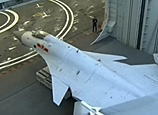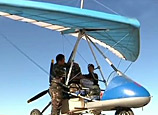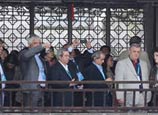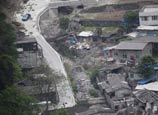
During the recycling process in the building, manual sorting is still a key phase to most efficiently recycle the refuse collected, 3R Center spokesman Katunori Iino told Xinhua.
The facility offers employment opportunities to people with disabilities for the manual sorting operations, Iino said.
"As long as machines cannot fully check the cleanliness of each object on the conveyer and contamination of foreign substances under the current system introduced here, we still need manual work at several steps to complete the process." Iino added, "But it is very unfortunate that we often find harmful and dangerous items in the waste on the belt, such as knives and syringes, which may damage employees' fingers and hands."
Iino added that since they want more people to understand they must maintain a safe and secure work environment there, the center decided to exhibit its manual sorting processes and the difficulties involved to promote awareness about the importance of properly separating rubbish in advance.
In fact, there is a tour route in the 3R Center. After a general introduction to the facility that includes lectures by center personnel and DVD presentations in the entrance hall, visitors can proceed to corridors for them to see the actual processing methods used for plastic bottles,other plastic materials and tins, while getting a close-up view of how non- recyclable items are manually separated.
The plant also provides space where elementary school students are able to learn the importance of the three Rs--"reducing"," reusing" and "recycling"--with games and quiz.
At the sorting and recycling game area, for example, players are given cards indicating familiar types of solid waste, which they can try to sort appropriately in front of a panel.
 |  |
















 Photo story: 'Grassroots philanthropist' donates foods to quake zone
Photo story: 'Grassroots philanthropist' donates foods to quake zone


![]()
